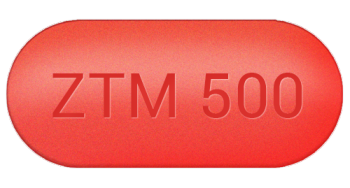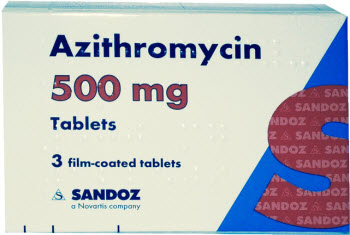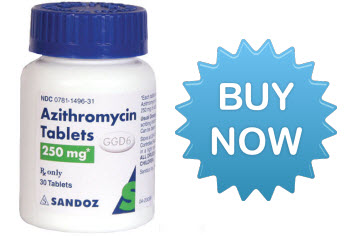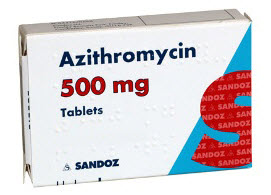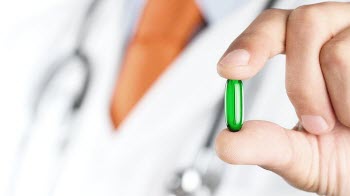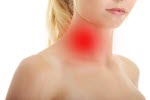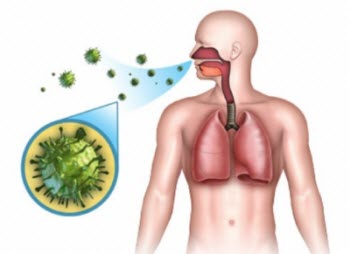
Antibiotics in dentistry
Antibiotics are widely used in all fields of medicine, dentistry is no exception. This group of drugs reduces inflammation, inhibits the development of possible complications. By resorting antibiotic dentists for two reasons: First, the features of the treatment, and secondly, the individual factor in the case of each particular patient. On the basis of these data is the selection of specific drugs and methods of their application.
Indications for use
The extent to antibiotics is determined depending on the nature of the disease and the response of the organism to the process.
Usually, antibiotics for dental pain are appointed in the case of periodontitis or osteomyelitis. If the patient was in a dentist's chair on the stage of exacerbation of the disease, especially in the presence of purulent inflammation after treatment with antibiotics is shown. The extreme need for prescribing occurs after surgical treatment of periodontal disease, refers to resection. In addition, this group of drugs should be taken with gum disease (advanced cases of periodontitis, periodontitis, necrotizing ulcerative gingivitis). All types of dental removal, particularly septic formations, opening abscesses, abscesses and are accompanied by the use of drugs of this class.
Appointment as a preventive measure
In some cases, the patient shows a prophylactic administration of these drugs. Then antibiotics in the treatment of teeth should be taken for 1-3 days prior to the upcoming procedure.
Most of these measures are necessary in the case of a high risk of bacterial endocarditis. The group of these patients include carriers established pacemakers, patients with prosthetic valves and those who suffer from heart failure, arthritis, endocarditis, and so forth. By the above are attached as patients with articular prostheses.
Antibiotics in these cases is much needed because of the risk of infection of tissues. This is especially true during dental procedures, accompanied by bleeding. Even banal getting rid of tartar can lead to similar consequences. The result will be the hit of the pathogens in the blood and the further development of inflammatory diseases.
The group of special patients requiring antibiotic therapy, are suffering from chronic infections in the oral cavity of patients with weakened immune systems. Task Force to complement well as patients with diabetes, rheumatoid arthritis and others. Selection of drugs in case of need antibiotic prophylaxis is also carried out on an individual basis.
Varieties used in dental preparations
Studies show that dental disease often develop because of the mixed bacterial flora in the oral cavity. It is therefore recommended to include dental antibiotics are a broad-spectrum preparations.
For drugs used orally, include:
- Amoxicillin;
- lincomycin;
- Ciprofloxacin;
- metronidazole;
- Azithromycin and Ave.
The injectable form of the following drugs are prescribed in dentistry:
- lincomycin;
- Clindamycin;
- Oxacillin.
Compounds that can be used by patients topically (as gels) Metrogil Dent; Holisal; Asepta.
Antibiotics, which are "likes" to appoint dentists
Among the most commonly prescribed antibiotics dentists are the following.
Ciprofloxacin
The preparation of the antibacterial spectrum of action. The medicine in the context of the dental field shown in postoperative infectious complications - developing chronic inflammatory processes and in the dental nerve (pulpitis complicated).
The drug is taken when the dental infections in the form of tablets of 0.5 g and 0.25 Dosage agent determined by a specialist in each individual case. The medicine usually does not cause side effects. In some cases there may be a manifestation of allergic reactions as rash, pruritus. Not excluded swelling of the face, vocal cords.
To the list of undesirable effects of the drug may be added:
- nausea;
- vomiting;
- lack of appetite;
- diarrhea;
- abdominal pain;
- insomnia;
- headache;
- feeling of malaise and anxiety.
Receiving the drug is accompanied by changes in the patient's blood analysis: reduction in the number of leukocytes, granulocytes and platelets. Very rarely observed violation of taste perception. During treatment with ciprofloxacin should avoid exposure to UV rays in order to prevent increasing the sensitivity of the skin to sunlight.
Metronidazole (Trichopolum)
Highly effective in various forms of gum disease and tooth decay. Preparation of DNA by reaction with harmful microorganisms has bactericidal effect on them.
When administered the drug concentrates in the gingival fluid, favorably affecting the dental plaque below the gumline, it is particularly well manifested in proper oral hygiene. Prescribe medication in tablet form 0,5 g is usually taken 1 tablet three times a day. The course of treatment - 10 days.
Among the possible side effects should be highlighted:
- headache;
- feeling of dryness in the mouth;
- dizziness;
- peripheral neuritis;
- metallic taste or bitter taste in the mouth after taking antibiotics.
When receiving Metronidazole is strictly forbidden to drink alcohol. Among the contraindications to the use of:. Heart failure, epilepsy, liver disease, etc. The greatest tool of efficiency can be achieved by combining the drug with amoxicillin.
Lincomycin
Dental antibiotic - so once called lincomycin. The drug is indicated for inflammation of the tooth root, for the treatment of periodontal disease, periodontitis (flux) and suppuration in the oral cavity. It is also prescribed for dental implants in the case of inflammation as a result of incorrect installation prosthetic.
The drug destroys conditionally pathogenic microbes (staphylococci, streptococci, etc..), Which is an antibiotic resistance is developed at a very slow pace. In addition, the drug can accumulate in the bone, thereby ensuring prevention of the spread of inflammation to the jaw bone.
Lincomycin presented in pharmacies as capsules, injection and ointments. The dental practice is more common form of the drug - cum-Dent-A, which is an antibacterial adhesive patch. In the case of severe periodontitis antibiotic inject intravenously or intramuscularly.
Side effects described in the following formulation:
- nausea;
- vomiting;
- esophagitis;
- stomach ache;
- problems with a chair;
- rash;
- itching;
- neutropenia;
- pancytopenia;
- anaphylactic shock;
- headache; dizziness.
At the first signs of any side effects of antibiotics should immediately seek medical help.
The effectiveness of antimicrobial agents
The effectiveness of antibiotic therapy in the field of dentistry is difficult to challenge. Preparations of this group are able to "insure" the patient from the development of various complications during treatment. In addition, currently spread downward trend in population immunity significantly increases the risk of all kinds of related diseases.
Dentists are concerned only the fact of the constant increase in the number of pathogens that have purchased or are resistant to antibiotics. Thus, most of the bacteria is no longer responsive to the first generation of drugs (penicillin, tetracycline, etc.).
For this reason dentistry is forced to go almost entirely at the expense of 2 and 3rd generation - drugs of lincosamides and macrolides, the effectiveness of which in some cases is questionable, particularly in the case of violation of the rules of treatment. Thus, the combination of antibiotics with the main methods of treatment of dental diseases really is effective, provided a competent approach by professional and meticulous work of the study group dental industry.
